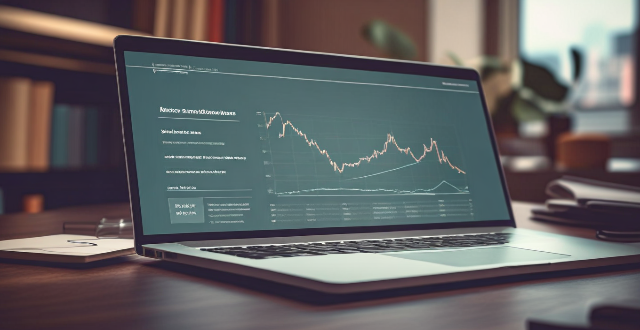People Pressure

Can team sports help in coping with pressure ?
Team sports can help cope with pressure by developing resilience, building confidence, providing supportive networks, and teaching time management.

How does peer pressure affect the mental and emotional development of adolescents ?
**Peer Pressure and Its Impact on Adolescent Development** Peer pressure significantly influences the beliefs, behaviors, and development of adolescents. Understanding its effects is crucial for promoting healthy growth. **Definition and Nature:** Peer pressure involves social and psychological influences that lead to conformity. It can be positive or negative. **Impact on Mental Health:** Constant peer influence can lead to stress, anxiety, depression, and self-esteem issues. **Effects on Emotional Development:** Adolescents may become dependent on peers, strain familial relationships, and face challenges in developing emotional intelligence. **Long-Term Implications:** Peer pressure can shape adult personality traits, career choices, and interpersonal skills. **Mitigating Negative Effects:** Parents, educators, and mental health professionals should encourage open communication, build resilience, and promote self-awareness among adolescents.

What is the role of peer pressure in maintaining or undermining academic integrity ?
Academic integrity is a commitment to honesty, trust, fairness, respect, and responsibility. Peer pressure can play a positive role in maintaining academic integrity by encouraging ethical behavior, promoting collaborative learning, and providing support and encouragement for students. However, peer pressure can also undermine academic integrity by promoting cheating and plagiarism, disrupting collaborative learning environments, and stigmatizing help-seeking behavior. It is essential to recognize the potential impact of peer pressure on academic integrity and work to foster an environment that supports ethical behavior and discourages cheating and plagiarism.

How can families deal with the pressure and expectations that come with competitive sports ?
The article discusses how to manage pressure and expectations in competitive sports. It suggests setting realistic goals that focus on personal growth rather than comparing oneself to others. It also recommends encouraging a positive mindset by praising effort and improvement, emphasizing the importance of sportsmanship and fair play, teaching resilience, and modeling a positive attitude towards sports and competition. To foster a supportive environment, it suggests providing regular feedback and constructive criticism, encouraging open communication about feelings and concerns, celebrating successes, big and small, and offering emotional support during tough times. Finally, it emphasizes the importance of maintaining a balanced lifestyle that includes time for rest, relaxation, and other activities outside of sports. By implementing these strategies, families can help their athletes enjoy their sports journey while achieving personal growth and success.

How do climate models account for factors such as ocean currents, atmospheric pressure, and solar radiation ?
Climate models are complex mathematical representations of the Earth's climate system, designed to simulate and understand the behavior of various components such as ocean currents, atmospheric pressure, and solar radiation. These factors play a crucial role in shaping our planet's climate, and their interactions are essential for accurate climate predictions. Ocean currents act as conveyor belts for heat, moving it from the equator towards the poles and helping to regulate global temperatures. Climate models use fluid dynamics equations to simulate the movement of water in the oceans, and observations from satellites and buoys are integrated into models to improve the accuracy of ocean current simulations. Atmospheric pressure influences weather patterns and is a key driver of wind systems around the globe. Numerical Weather Prediction (NWP) Models solve the Navier-Stokes equations to simulate atmospheric pressure changes over time, while Global Climate Models (GCMs) incorporate principles of thermodynamics and fluid dynamics to predict how pressure variations will impact climate. Solar radiation provides the primary energy source that drives Earth's climate system. Radiative Transfer Models (RTMs) calculate how solar radiation interacts with the atmosphere and Earth's surface, while Spectral Irradiance Models estimate the amount of solar energy reaching Earth based on sunspot activity and other solar cycles. Coupled Models combine RTMs with atmospheric and oceanic models to understand the full impact of solar radiation on climate.

What are the effects of stress and pressure on an athlete's performance, and how can sports psychology mitigate these ?
Stress and pressure can have both positive and negative effects on an athlete's performance. In small amounts, stress can increase focus and motivation, leading to improved performance. However, excessive stress and pressure can have detrimental effects on an athlete's physical and mental health, as well as their overall performance. Sports psychology is a field that focuses on using psychological techniques to improve athletic performance and enhance overall well-being. Sports psychology professionals work with athletes to develop strategies for managing stress and pressure, improving mental toughness, and enhancing overall performance.

How does the pressure of expectations from fans, media, and sponsors influence an athlete's performance at a competitive level ?
The text discusses the influence of expectations from fans, media, and sponsors on athlete performance. It outlines both positive and negative impacts of these expectations. Fan expectations can motivate athletes and boost their confidence but can also cause anxiety and distractions. Media expectations increase publicity and accountability but may lead to overwhelming pressure and misrepresentation. Sponsor expectations provide financial support and brand alignment opportunities but can result in contractual pressures and distractions. Overall, managing these external pressures effectively is crucial for athletes to maintain optimal performance levels.

What is the impact of sports on the career aspirations of young people ?
Text: The Impact of Sports on the Career Aspirations of Young People Introduction - Sports are integral to society and significantly impact young people's career aspirations. - This article explores both positive and negative aspects of sports' influence on career goals. Positive Impact 1. Development of Key Skills - Teamwork, leadership, perseverance, and other skills developed through sports are beneficial in any career. 2. Increased Confidence and Self-Esteem - Success in sports can boost confidence and self-esteem, making young people more likely to pursue ambitious career goals. 3. Exposure to Diverse Opportunities - Sports open doors to various career paths and scholarships for higher education. Negative Impact 1. Pressure and Burnout - Intense focus on sports achievements can lead to excessive pressure and burnout. 2. Limited Time for Other Activities - Dedication to sports training may leave little time for exploring other interests or developing skills outside of sports. 3. Injury Risks - The risk of injury is always present in sports and can hinder a young person's ability to pursue a sports-related career or affect overall employability. Conclusion - Sports have a profound impact on the career aspirations of young people. - While they offer numerous benefits, it is essential to be aware of potential drawbacks. - Balancing sports involvement with other activities and interests allows young individuals to make informed decisions about their future career paths while enjoying the benefits of sports.

How do successful athletes manage pressure and stress ?
Successful athletes use various strategies to manage pressure and stress, including visualization and mental rehearsal, mindfulness and meditation, goal setting and preparation, routine and consistency, social support, physical health and recovery, and flexibility and adaptability. These techniques help them stay calm, focused, and resilient during major competitions.

How do celebrities handle stress and pressure ?
Celebrities manage stress through meditation, exerciseCelebrities manage stress through meditation, exercise, social support, time management exercise, therapy, creative outlets, social support, time management, and healthy lifestyle choices.

How does public opinion influence the outcomes of climate summits ?
Public opinion is a powerful force that can drive political change, particularly on issues like climate change. It can influence policymakers, negotiators, and stakeholders to take action on climate change by creating pressure on decision-makers, driving policy change, holding governments accountable, and encouraging international cooperation. Public support for climate action can lead to more ambitious targets and commitments, more effective policies and measures, further pressure on governments to take stronger action, and a sense of solidarity among nations. As individuals, we can all contribute to this process by staying informed about climate issues and expressing our views through various channels.

What are the benefits and drawbacks of pursuing a career in sports psychology ?
Pursuing a career in sports psychology can have both advantages and disadvantages. Sports psychologists promote mental health awareness, reduce stigma, and enhance athletic performance through resilience and coping strategies. They also enjoy continuous learning opportunities and work with diverse clientele. However, the job market is competitive, and opportunities may be limited outside of professional sports settings. Additionally, sports psychologists often face high-pressure environments and emotional tolls from their clients' struggles. Skepticism and resistance towards their role may also exist due to lack of understanding or macho attitudes in some sports cultures.